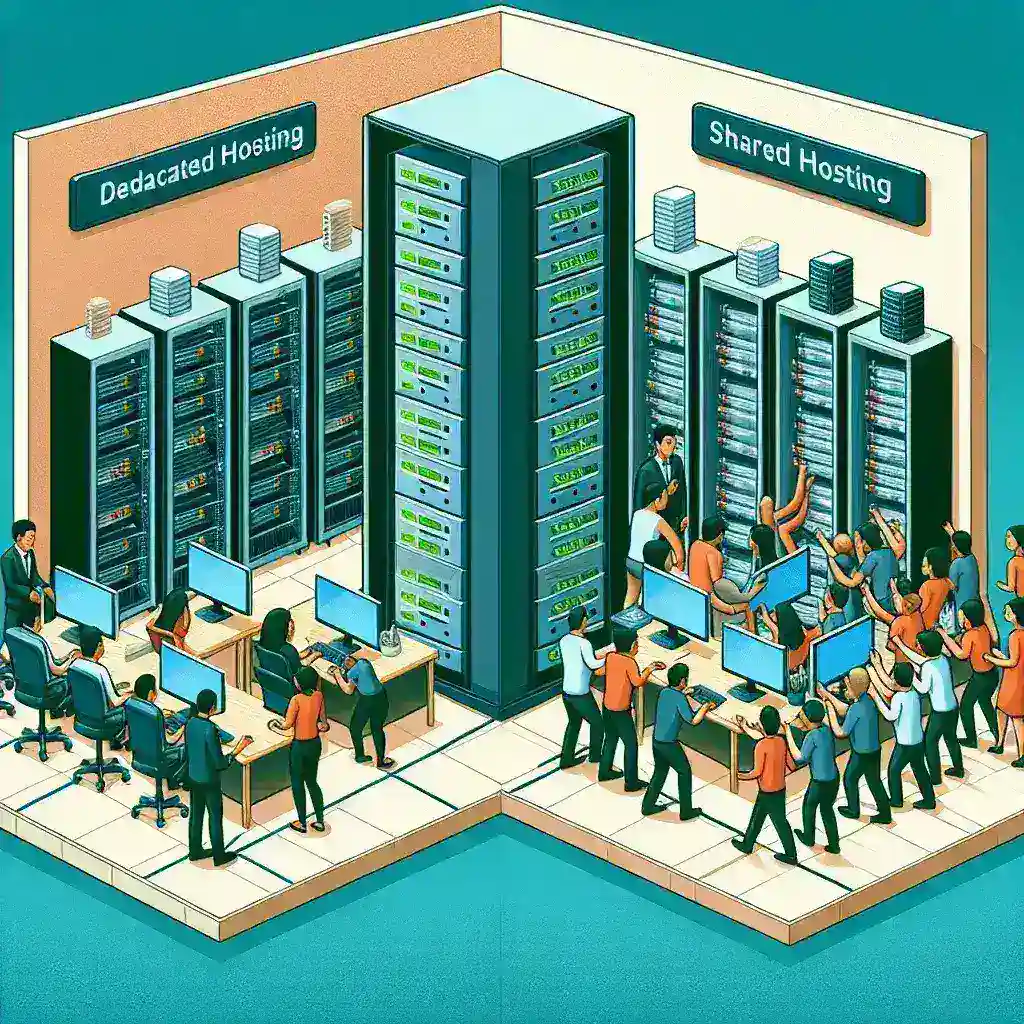Introduction
In the world of web hosting, choosing between dedicated hosting and shared hosting is a significant decision that can greatly impact your website’s performance, security, and scalability. This article delves into the advantages of dedicated hosting over shared hosting, offering a clear comparison to help you make an informed choice.
Comparison of Dedicated Hosting and Shared Hosting
| Features | Dedicated Hosting | Shared Hosting |
|---|---|---|
| Performance | High | Variable |
| Security | Enhanced | Standard |
| Customization | Flexibility | Limited |
| Cost | Higher | Lower |
| Scalability | Excellent | Moderate |
| Resource Allocation | Exclusive | Shared |
Performance
One of the most significant advantages of dedicated hosting is the unparalleled performance it offers. In dedicated hosting, the entire server is allocated to a single client, ensuring that you have access to all the server resources, such as CPU, RAM, and bandwidth, without any disruptions. This exclusive access translates to faster load times, higher uptime, and a more reliable user experience.
In contrast, shared hosting involves multiple websites sharing the same server resources. This sharing can lead to variable performance, especially if other websites experience traffic spikes or resource-intensive activities, which can drain available resources and slow down your site.
Real-World Impact
Consider two scenarios:
- Scenario 1: Your e-commerce site is hosting a flash sale. With dedicated hosting, you can handle a significant surge in traffic without any performance degradation.
- Scenario 2: A shared hosting e-commerce site hosting a flash sale may experience slow load times and even downtime if other hosted sites are also experiencing high traffic.
Security
Security is a paramount concern for any website owner, and dedicated hosting significantly enhances security measures. Since you are the sole user of the server, there are fewer vulnerabilities as there’s no risk of another website’s security issues affecting yours.
Dedicated hosting often includes advanced security features such as:
- Dedicated firewalls
- Advanced DDoS protection
- Regular security updates
On the other hand, shared hosting can pose several security risks. As multiple websites share the same server, a security breach in one site can potentially compromise the entire server, affecting all the websites hosted on it.
Customization Flexibility
Dedicated hosting grants you full control over the server environment. This flexibility allows you to install and configure any software, applications, or scripts that your website or application requires.
In contrast, shared hosting environments offer limited customization options. Options are generally restricted to applications and software supported by the hosting provider, which may not meet the specific needs of your website.
Example Use Cases
- Software Development: A dedicated server allows developers to create custom environments mimicking production, which is essential for testing and development.
- Large Online Stores: Greater customization means you can implement advanced analytics tools to track customer behavior better.
Cost Considerations
While dedicated hosting offers numerous benefits, it does come at a higher cost compared to shared hosting. Dedicated hosting requires you to bear the entire cost of the server, including hardware and maintenance expenses. Shared hosting is generally more affordable as the costs are divided among multiple users.
If budget constraints are significant, shared hosting can be a suitable option for small websites or those just starting out. However, for businesses that require robust performance and advanced features, the investment in dedicated hosting can be highly justified.
Scalability
Dedicated hosting provides excellent scalability options. As your website grows, you can easily upgrade your server capabilities to accommodate increased traffic and resource demands.
Shared hosting, while offering some scalability, is limited. You might encounter bottlenecks as your website grows, necessitating a move to a more capable hosting option such as dedicated hosting.
Resource Allocation
In dedicated hosting, all server resources are at your disposal. This exclusive access ensures optimal website performance and eliminates the risk of resource contention.
With shared hosting, resources are divided among all websites on the server. During peak periods, this sharing can affect your website’s performance as resources are stretched thin.
Conclusion
The choice between dedicated hosting and shared hosting ultimately depends on your specific needs, budget, and future growth plans. Dedicated hosting offers superior performance, enhanced security, greater customization, and excellent scalability, making it a worthwhile investment for businesses that demand high reliability and efficiency. Shared hosting, on the other hand, is a cost-effective solution for smaller websites or those just starting out.
By understanding the advantages of dedicated hosting over shared hosting, you can make an informed decision that aligns with your website’s goals and requirements.

